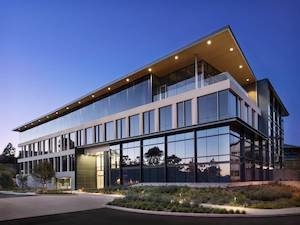Seismic Acquires Savo Group, Rival in Sales Enablement Software

In the eight years since it was founded, Seismic has become a leader in the market for Web-based software used by corporations and other big customers to manage the online marketing materials created to support sales reps in the field.
Today, the San Diego software-as-a-service company says it has agreed to acquire the Chicago-based Savo Group, a Seismic competitor in a still-emerging field known as “sales enablement” software, and one of the first companies in the field. Financial terms of the deal are being withheld, according to Seismic CEO Doug Winter.
The combination makes Seismic two to three times the size of any other competitor in what has been “a pretty fragmented space,” Winter said. The privately held company, which has raised a total of roughly $75 million from investors, had about 350 employees before the Savo deal. With the Savo acquisition, Seismic now has about 450 workers across eight offices, including Boston, New York, San Francisco, London, and Sydney, Australia.
Perhaps more importantly, Seismic’s customer base has expanded to more than 500 enterprise customers worldwide. Seismic’s customer list already included Getty Images, NCR, Capital One, and Illumina. On its website, the Savo Group’s customer list includes BMC Software, ADP, and Walgreen’s. In particular, the Savo Group already has a beachhead in Europe, where Seismic has been looking to expand.
“We feel pretty good about the customer base that we’ve acquired, as well as the people,” Winter said. “This really kind of bolts us ahead on the growth curve.” With sales of well over $50 million in 2017 (a 97 percent leap over the previous year), Seismic’s annual revenue should hit $100 million by the end of 2018, Winter said. According to a statement from the company, Seismic has achieved at least 95 percent revenue growth for six years in a row, and strong customer retention.
[Updates with Mediafly comment] Following Seismic’s announcement today, the CEO of Mediafly, a Chicago-based rival in sales enablement, characterized the Savo buyout as “a healthy shakeup for this space that is sure to create new opportunities and attract financial investment.”
In a statement to Xconomy, Mediafly CEO Carson Conant wrote: “Seismic’s acquisition of Savo validates the sales enablement space as one of the next big enterprise software environments. Similar to what played out in the marketing automation space several years ago with four companies emerging as clear leaders, the Vector Capital-owned Corel acquisition of ClearSlide, Quark acquisition of Docurated, and now the Seismic acquisition of Savo signals the coming consolidation of this space as it matures, with Seismic as the financial leader to catch.”
Seismic has developed cloud-based technology that pulls live data from various sources for use in charts, reports, graphics, and other types of electronic documents. The company said its software is used by customers to help their sales and marketing teams operate more effectively, by automatically updating sales and marketing content.
Seismic also has integrated its software with Salesforce (NYSE: CRM). Winter said the San Francisco customer relations management software is more complementary than competitive with Seismic’s technology.
Even though Savo Group was founded in 1999, sales enablement software is still in the early stage of the technology adoption curve, Winter said. Competitors include Accent Technologies of Melbourne, FL, and Showpad, a Belgium company with a U.S. headquarters in Chicago.
“It’s kind of a crowded space,” Winter said. Apparently, though, it’s still a small-enough community for word of Seismic’s acquisition of Savo (which was reached between the two companies on May 1) to precede the deal announcement made today. In a statement sent by e-mail to Xconomy Monday, David Keane, the CEO of a Seismic rival, Boston-based Bigtincan wrote:
“It’s an interesting, and even surprising, move to see Seismic acquire a 20-year-old legacy technology company and try to tout it as a move towards innovation in the sales enablement space. This merger will most likely serve as an impediment to Seismic’s market progress, as they take on huge financial and technological liability.
“At first glance, when we see the merger of two major players in a given industry, many point to this as a sign of industry growth—main players are getting bigger, combining both their tech offerings and their client portfolios—and this can seem great on paper. However, for a partnership to truly benefit the industry, it has to drive innovation—otherwise, it’s not benefitting customers, rather, it’s only of benefit to the venture capitalists…”
Asked to respond, Seismic spokesman Jason Fidler said that Seismic, as a combined company, will have about 160 employees working on engineering product development, with another 125 in customer support. In either category, Fidler said, that’s more staffers than the total employment at most rival companies.
“The acquisition ultimately is about having more resources available to help our customers achieve their sales enablement goals,” Fidler said.
(66)

